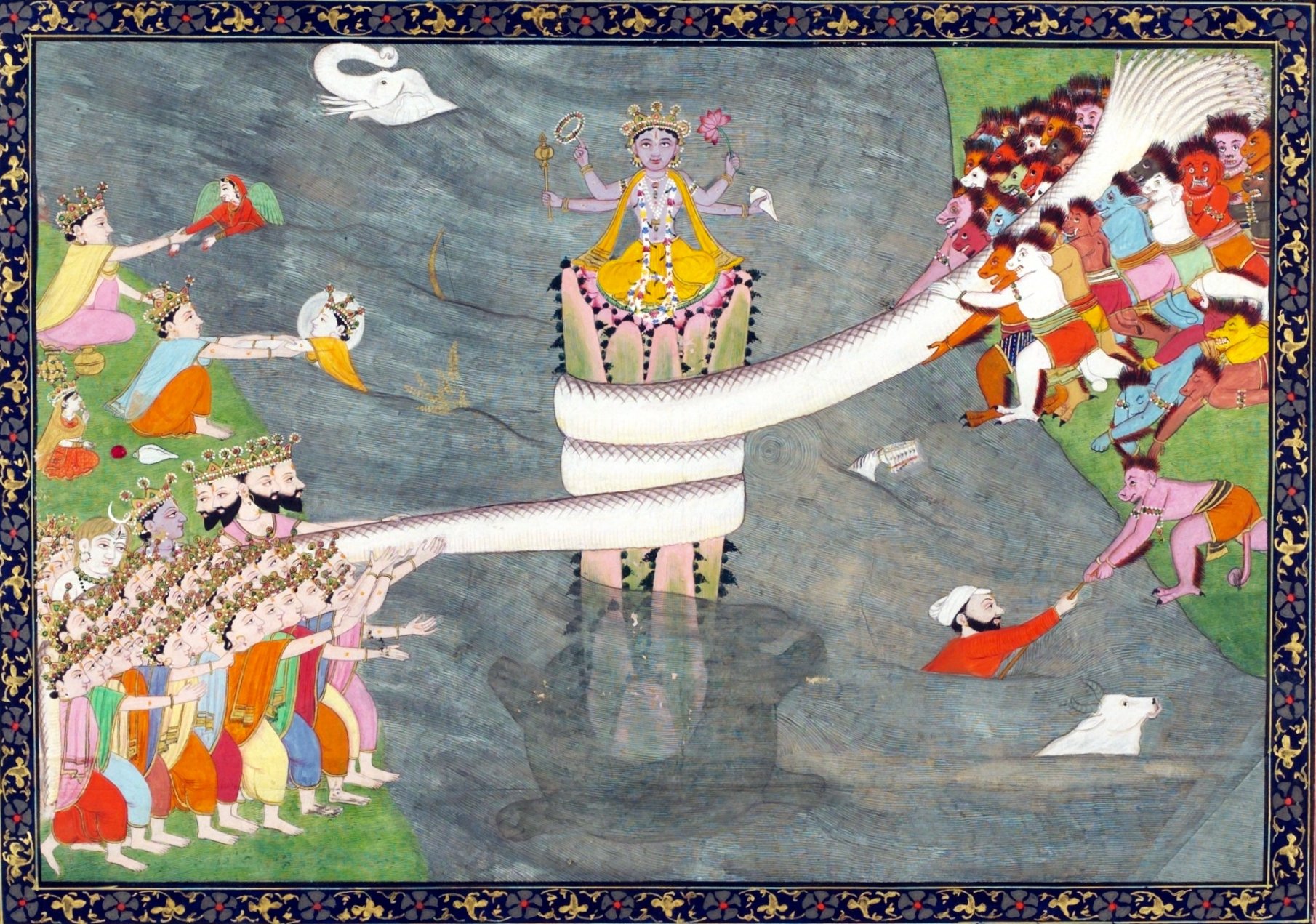The following excerpt complements the previous one, being a concise summary of a curious psychological phenomenon, an essential root of the "mechanicalness" that severs the link with the unknown, generating thus the soul-less manifestations that predominate in modern times, both in art, personal relations and other social areas. Something to be observed in different situations of daily life:
Have you ever tried to watch yourself mentally when your attention has not been set on some definite problem for concentration? I suppose most of you are familiar with this, although perhaps only a few have systematically watched it in themselves. You are no doubt aware of the way we think by chance association, when our thought strings disconnected scenes and memories together, when everything that falls within the field of our consciousness, or merely touches it lightly, calls up these chance associations in our thought. The string of thoughts seems to go on uninterruptedly, weaving together fragments of representations of former perceptions, taken from different recordings in our memories. And these recordings turn and unwind while our thinking apparatus deftly weaves its threads of thought continuously from this material. The records of our feelings revolve in the same way—pleasant and unpleasant, joy and sorrow, laughter and irritation, pleasure and pain, sympathy and antipathy. You hear yourself praised and you are pleased; someone reproves you and your mood is spoiled. Something new captures your interest and instantly makes you forget what interested you just as much the moment before. Gradually your interest attaches you to the new thing to such an extent that you sink into it from head to foot; suddenly you do not possess it any more, you have disappeared, you are bound to and dissolved in this thing; in fact it possesses you, it has captivated you, and this infatuation, this capacity for being captivated is, under many different guises, a property of each one of us. This binds us and prevents our being free. By the same token it takes away our strength and our time, leaving us no possibility of being objective and free —two essential qualities for anyone who decides to follow the way of self-knowledge. (Views From The Real World, G.I.Gurdjieff, Speaking about different subjects, Section II)
After hearing this, one might feel inclined to think that the string of habitual associations (pleasure-displeasure, satisfaction-irritation...) is random or even unnecessary. But that wouldn´t be entirely right.
First of all, the psychological and physical chains of associations are necessary for the flow of Life in general –even the DNA is an associative chain or sequence–.
Now, the "lack of attention to the senses" opens the door to associations that make us erratic and destructive. On the contrary, a proper focus cleans the brain and fosters harmonious associations that fill our being with clarity and serenity.
Now, the "lack of attention to the senses" opens the door to associations that make us erratic and destructive. On the contrary, a proper focus cleans the brain and fosters harmonious associations that fill our being with clarity and serenity.
Certainly, many inner associations are unnecessary, frantic and chaotic, as those promoted by an insane mass media through the bombardment of morbid TV News, commercials, movies, poisoned food and other products that generate addictions and low passions. All enough to see how deep is the pit many modern humans dig for themselves, "aimlessly".
Surprisingly, the associative chaos is not completely chaotic, for there seems to be a "pattern in delusion"; otherwise nothing coherent could be known about it. In fact, ancient art mirrored this aspect in some way or another. We have for instance the image of the Milky Ocean being churned by two groups of deities that remain on opposite sides of the World Axis, pulling the Serpent, the Cosmic Energy that binds all opposites in chains, as Aphrodita did for the Greeks.
There are also wise men who became experts in showing the Pillars of Delusion. The famoust example is Siddharta Gautama the Buddha and his teaching about the Four Noble Truths and the co-origination of the Twelve Causes of Existence, which we may examine some day.
Surprisingly, the associative chaos is not completely chaotic, for there seems to be a "pattern in delusion"; otherwise nothing coherent could be known about it. In fact, ancient art mirrored this aspect in some way or another. We have for instance the image of the Milky Ocean being churned by two groups of deities that remain on opposite sides of the World Axis, pulling the Serpent, the Cosmic Energy that binds all opposites in chains, as Aphrodita did for the Greeks.
There are also wise men who became experts in showing the Pillars of Delusion. The famoust example is Siddharta Gautama the Buddha and his teaching about the Four Noble Truths and the co-origination of the Twelve Causes of Existence, which we may examine some day.
And as the Greeks said, "like attracts the like". All associations are chained by "affinity". Therefore, in the end we are probably responsible for them, since the decision to avoid feeding contaminated associations that lead to suffering and attachment is ours. On the contrary, pure associations can be fostered with attention, and these might even help us to be free.
Isn´t all this the purpose of true art? Isn´t that the purpose of meditation and reflection? Isn´t the cultivation of "sanity amidst insanity" the most important task of modern humanity?
Next time we will open a new window to discover if music can really help to bring creative associations and re-connect ourselves to something greater.
Isn´t all this the purpose of true art? Isn´t that the purpose of meditation and reflection? Isn´t the cultivation of "sanity amidst insanity" the most important task of modern humanity?
Next time we will open a new window to discover if music can really help to bring creative associations and re-connect ourselves to something greater.

No comments:
Post a Comment